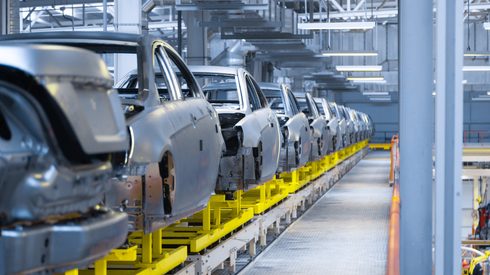South Korean chemical firm LG Chem has signed a Memorandum of Understanding (MoU) with the US state of Tennessee for the establishment of a new cathode manufacturing facility in the city of Clarksville, it said on Tuesday November 22.
The new plant will have nameplate production capacity for 120,000 tonnes per year of cathode material, to be achieved by 2027. Once that nameplate capacity is achieved, the facility will have the ability to produce enough rechargeable batteries for 1.2 million high-performance electric vehicles (EVs) each with a range of 310 miles (500km) per charge, LG Chem said.
Construction of the plant was expected to start in the first quarter of 2023, with full production capacity to be achieved by the second half of 2025.
The new plant will produce advanced NCMA (nickel, cobalt, manganese, aluminium) cathode materials for the next generation of EV batteries, with improved battery capacity and stability, it said.
The investment of more than $3 billion was in line with LG Chem’s strategy to expand its battery materials business globally to match the unfolding of energy transition and the uptake of e-mobility.
The company said that it intends to work with critical minerals suppliers and recycling partners to procure the materials needed to feed the plant. It did not provide any details of potential partnerships, however, so it was not immediately clear where such partners might be located, nor where they would source raw materials.
But the investment fits into the strong growth in battery demand in the US arising from the passage of the Inflation Reduction Act (IRA). The country will enforce policies intended to drive battery demand domestically and to secure the establishment of a resilient domestic battery value chain to support its transition to EVs.
The IRA offers a tax credit for the purchase of EVs in which at least 80% of the lithium, cobalt, nickel and manganese used in their construction has been extracted and processed in the US, or in a country with which it has a free trade agreement.
The new facility in Tennessee will address the geography-related risks triggered by the passage of the IRA, LG Chem said.
The announcement was the most recent in a raft of announcements about US battery value chain projects, highlighting market expectations for demand growth.
For instance, Norway-based FREYR Battery has announced the development of a $1.7 billion EV battery gigafactory in the US state of Georgia. FREYR Battery expects US demand for energy storage systems (ESS), EVs and other electric mobility applications to grow rapidly over the next decade, it said earlier this month.
Cobalt sits alongside nickel and lithium as a key metal used in EV battery components.
Fastmarkets most recently assessed the price of cobalt, standard grade, in-whs Rotterdam, at $21.65-22.75 per lb on November 22, down by 0.58% day on day. The benchmark cobalt price assessment has been dropping recently, market sources said, because of weak downstream demand from the chemicals sector and bearish sentiment in Asia. It was $25.25-26.00 per lb a month earlier, and at a year-to-date high of $39.75-40.50 per lb in early May.
Visit our dedicated battery raw materials page to discover more insights on the factors at play in the industry in 2022 and beyond.





